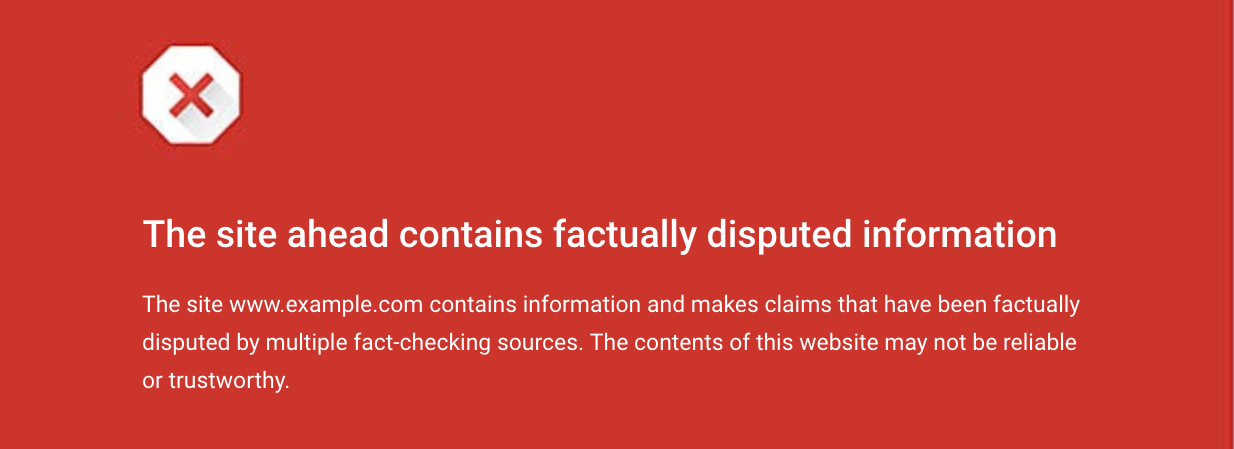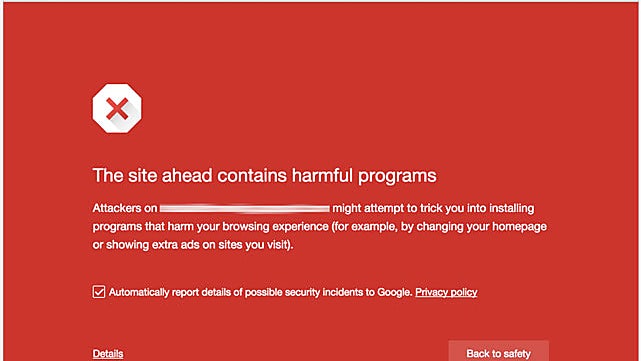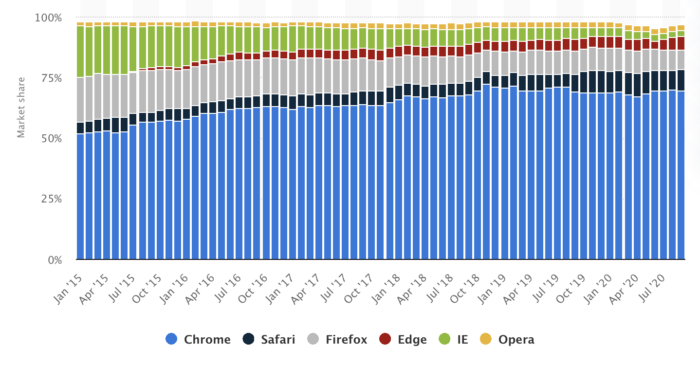
When Fact-Checking Comes To Web Browsers
With all the outcry over censorship on social media by tech giants after the most recent 2020 election cycle, it got me thinking – what happens when fact-checking goes beyond social media websites and is built into web browsers themselves?
This is not too far of a stretch to imagine. The use of fact-checking is increasingly widespread in big tech companies to fight misinformation, lies, false claims, etc. and companies like Facebook, Twitter, and others are mostly digging in and doubling down on it – not backing off.
Fact-Checking Is Booming
The industry of fact-checking is booming:
According to the 2019 Duke University Reporters’ Lab census, 44 fact-checking organizations existed five years ago; there are 195 now
Fall 2019 – https://www.cjr.org/special_report/fact-check-industry-twitter.php
The reality is that there is a clear trend of fact-checking growing and becoming an increasingly important and widely used tool in many of the largest tech websites and platforms. There is no indication of this trend slowing down or suddenly reversing.
If the trend continues to grow and eventually makes its way into web browsers, there would be a real risk for content creators that their own websites may somehow end up on this fact-check list – either intentionally or accidentally – and be effectively blocked from viewing. The potential for abuse, bias, and/or accidental mis-categorization is apparent, and may be difficult to appeal or reverse – it really depends on how “clear cut” the case is, and who the fact-checker is.
Malware/Dangerous Website Blocking
Most widely used web browsers already scan for and block websites known to have malware and dangerous content, presenting large warning messages like this to uses who try to visit those websites:

These warnings are based off centrally controlled lists of URLs known to have malware or harmful/abusive content, like Google’s Web Risk API.
Detecting genuinely bad actors and websites that are harmful and unsafe is a very useful and helpful service that protects users – I am not arguing against it here. I am simply pointing out here that the precedence of a web browser making determinations on the website’s safety and preemptively blocking it is already set.
What if big tech decided to take it a step further into the realm of fact-checking URLs directly inside web browsers themselves like Twitter, Facebook, and others have, and block fact-checked websites too?
Limited Web Browser Options
Similar to search, most of the power is concentrated in the hands of Google here, with Google Chrome being the most popular browser by far:

https://www.statista.com/statistics/544400/market-share-of-internet-browsers-desktop/
This means that if Google ever decided to implement fact-checking, the effect would be immediate and severe for websites that find themselves on the list of fact-checked URLs.
Google has already been accused of censoring search results for certain search phrases by burying them many pages deep, so again – this is not really too far of a stretch to imagine.
Extreme Adverse Impacts
The net effect of a website ending up on this imaginary list of “fact-checked” URLs would be both immediate and extreme if it was implemented in web browsers. Imagine just visiting a website by typing in the URL or clicking a link to it, only to be greeted with a large “fact-check” warning banner or screen before you can even view it. There would be no escape from that.
There is already a negative traffic impact with censorship and fact-checking on social media websites like Facebook and Twitter leading to fewer click-throughs, views, and shares – both on the left and on the right. In these cases, at least the traffic impact is limited to traffic acquired through those social networks themselves, and those businesses could still build audiences and traffic to their own websites through other means. But what if that wasn’t the case?
From the beginning of the web, individuals and companies have at least been able to have full control over their own websites and how they are presented to users. What if in the future even the option to run your own independent website was also threatened by overzealous fact-checking tech companies via web browsers?
This Is All Hypothetical – For Now
As of writing, the idea of fact-checking websites themselves directly in web browsers is purely hypothetical. This article is really more of a public thought exploration, so if you made it this far – thanks for riding along with me on the journey.
Hopefully none of this will ever become a reality. It would be a huge blow to the nature of the open web if web browsers used their market power to unilaterally block access to websites they don’t agree with over fact checks. The overall fact-checking trend is clear though, and is definitely interesting to think about how it might expand in the future. I wish I could say the future looks bright in the realm of fact-checking, but unfortunately for those who still believe in free speech, it doesn’t.